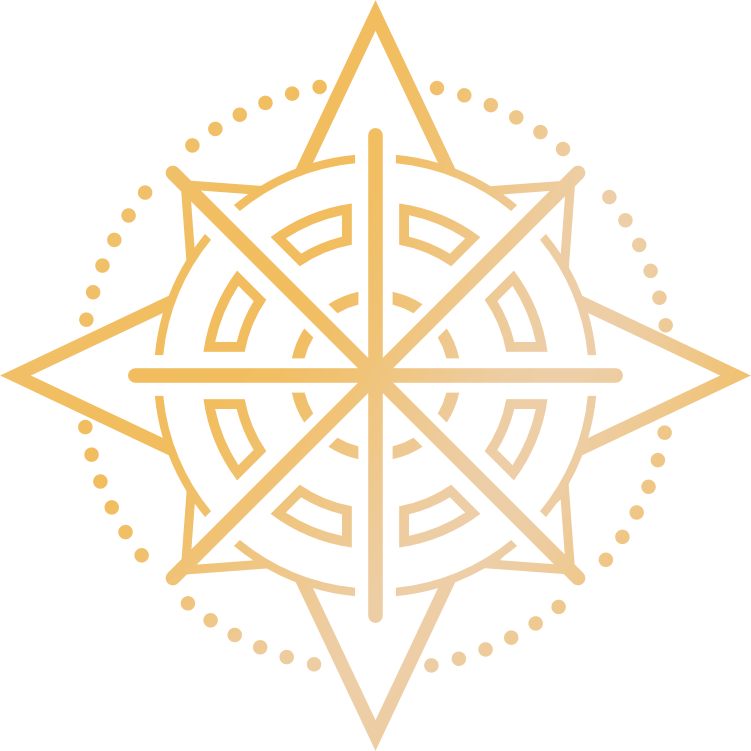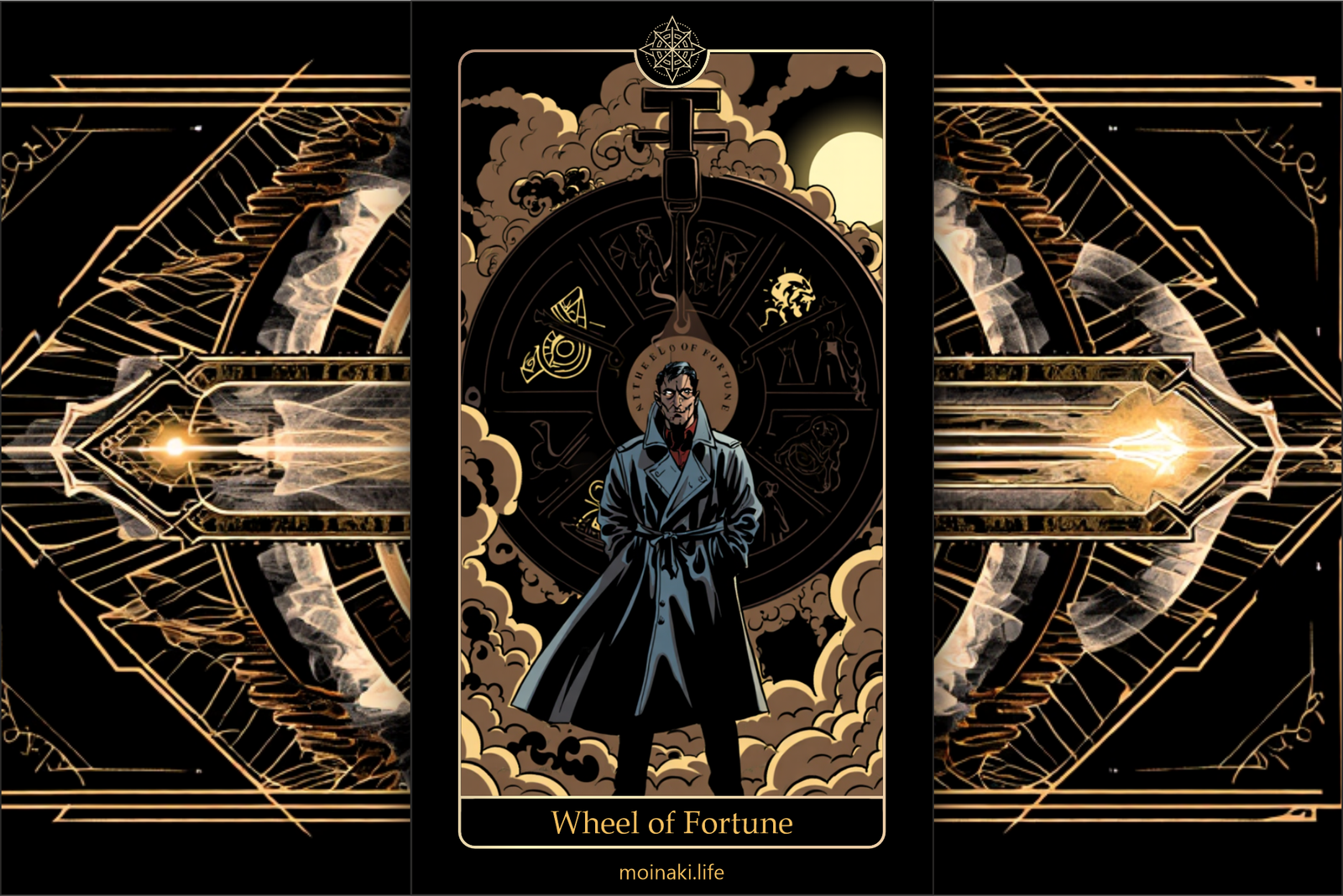Wheel of Fortune
The Wheel of Fortune is one of the most iconic cards in the Tarot deck. Just looking at its image—a giant wheel turning, surrounded by enigmatic symbols—you can feel the energy of change and unpredictability. Unlike cards that suggest direct action or emotion, the Wheel of Fortune speaks to the rhythms of life itself. It’s a card that reminds us of cycles: luck, fate, beginnings, and endings. But what does this all mean for someone seeking clarity or support during a difficult time?
Understanding the Wheel of Fortune: Context and Imagery
The Wheel of Fortune card is often depicted as a great wheel, spinning in the sky, sometimes with mythical creatures or symbols of the four elements at each corner. The wheel is always turning—sometimes you’re at the top, sometimes at the bottom. The message is clear: change is inevitable.
“Nothing stays the same for long. Change is the only constant.”
In a psychological context, the Wheel of Fortune asks us to reflect on our relationship with change. Do we welcome it, or resist it? Are we holding onto the illusion of control?
Core Meanings: Upright and Reversed
Upright Wheel of Fortune
When upright, the Wheel of Fortune is about good fortune, turning points, and new cycles. It’s a sign that the universe is in motion. Sometimes, things fall into place through no direct action of our own. Opportunities might arise unexpectedly, or a period of stagnation may give way to momentum.
- Unexpected opportunities
- Positive change
- Turning points
- Synchronicity
In terms of personal growth, the upright Wheel of Fortune invites you to stay open to new possibilities. It encourages you to trust that life has its own rhythm and that being adaptable is often more important than being in control.
Reversed Wheel of Fortune
When reversed, the Wheel of Fortune can suggest setbacks, resistance to change, or feeling stuck in a cycle. It might feel like things are happening “to” you, rather than “for” you. This can trigger frustration, anxiety, or a sense of helplessness.
- Unexpected setbacks
- Feeling out of control
- Difficulty moving on
- Repeating patterns
Psychologically, this position asks you to reflect: Are you clinging to the past? Are you resisting a necessary transition? Sometimes, the reversal is a nudge to let go of old habits or beliefs that are keeping you stuck.
Applying the Wheel of Fortune in Modern Life
The Psychology of Change
Our minds crave certainty. Change can feel threatening, even when it leads to something better. The Wheel of Fortune is a powerful reminder that change is not just inevitable—it’s vital for growth.
“We cannot become what we want by remaining what we are.” — Max DePree
When this card appears, it’s an invitation to practice acceptance, flexibility, and self-compassion. It’s natural to feel uneasy during transitions, but resisting change often makes things harder.
Common Life Situations
- Career: Unexpected job changes, promotions, or shifts in responsibility can be stressful. See them as new cycles, rather than threats.
- Relationships: People come and go, dynamics evolve. The Wheel of Fortune asks us to value the lessons each connection brings, even if it’s time to move on.
- Emotional Well-being: If you’re feeling stuck, this card encourages you to look for small ways to shift your mindset or routine.
Wheel of Fortune as a Tool for Self-Reflection
Instead of seeing the Wheel as just luck or fate, try using it as a lens for personal insight. Ask yourself:
- What cycles are repeating in my life?
- Am I resisting change? Why?
- How can I respond more flexibly to what’s happening?
This card can be a gentle prompt to embrace change not as loss, but as an opportunity for learning and renewal.
Practical Steps and Exercises
1. Mindful Journaling
Take a few minutes each day to write about changes you’re experiencing—big or small. Notice your emotions and any patterns that emerge. Try to identify where you’re clinging to control, and where you might practice letting go.
2. Reflection Exercise: The Change Circle
- Draw a circle on a piece of paper. Divide it into four sections: “What’s changing,” “What I can control,” “What I cannot control,” and “How I feel.”
- Fill in each section. This helps you visually separate your concerns and focus your energy on what’s within your influence.
3. Affirmation Practice
“I welcome new cycles in my life. I trust my ability to adapt and grow.”
Repeat this affirmation daily, especially during times of transition. Notice how your attitude toward change shifts over time.
4. Small Acts of Flexibility
Once a week, intentionally do something differently—a new route to work, a different meal, or a small change in your routine. These acts train your mind to adapt and reduce anxiety about bigger, uncontrollable changes.
Conclusion: Embracing the Wheel
Ultimately, the Wheel of Fortune is not about fate controlling your life, but about learning to dance with change. Its wisdom lies in reminding us that every ending is a beginning, and every setback brings a new opportunity for growth. When you approach life with curiosity, acceptance, and self-compassion, you transform uncertainty from a threat into a source of empowerment.
“Tarot is not fortune-telling — it’s a mirror for reflection and growth.”

